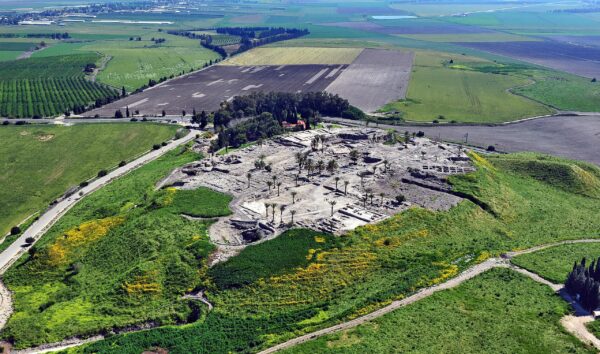Archaeologists in Israel have reportedly uncovered a rare glimpse into the world of the ancient Canaanites — a people central to Old Testament history — alongside what is believed to be the country’s oldest winepress.
The discovery, made near Tel Megiddo in the Jezreel Valley, adds new depth to a site long tied to both biblical prophecy and the earliest days of urban civilization in the region.
The Israel Antiquities Authority (IAA) announced the find on Nov. 5 following excavations conducted in tandem with construction of Highway 66. Artifacts uncovered at the site date back as far as 3000 B.C., during Israel’s Early Bronze Age, and extend to around 1270 B.C. in the Late Bronze Age — a span of time encompassing both the rise of ancient city-states and the culture that shaped the early biblical world.
Tel Megiddo holds a special place in both archaeology and faith. The site, referred to in the Book of Revelation as “Armageddon,” derives from the Hebrew “Har Megiddo,” or “mountain of Megiddo,” the prophesied location of the world’s final battle. For archaeologists, it continues to be a living record of how faith and civilization intersected thousands of years ago.
Among the findings, the standout artifact was a rock-hewn winepress — the oldest of its kind ever discovered in Israel. “This wine press is unique, one of very few known from such an ancient period when urbanization first took place in our region,” officials said in a statement. Until now, evidence of early wine production was largely circumstantial. The new discovery, they noted, “provides new and clear evidence that early wine production actually took place here.”
The excavation also revealed signs of a local Canaanite folk cult from roughly 3,300 years ago, including a miniature ceramic model of a shrine, imported Cypriot jugs, and animal-shaped ritual vessels. Archaeologists believe these items were used for “libations” — ceremonial pourings of liquids such as wine, milk, or oil during religious rituals. The artifacts, found near an open-air altar, suggest that common farmers may have practiced worship outside Megiddo’s main temple complex.
“Some of these offerings were discovered as intact pottery vessels buried next to a large rock outcrop, which may have served as an open-air altar outside the Canaanite city of Megiddo,” researchers said. The evidence indicates a continuity of faith practices and agricultural consecration that spanned centuries.
IAA Director Eli Escusido described the finds as “revealing, layer by layer, the wealth of history hidden and embedded in the soil here.” He added that the exposure of wine-making facilities and open-air worship sites allows modern observers “to become acquainted with the daily life and beliefs of the region’s residents over the course of thousands of years.”
Earlier this year, archaeologists at Tel Megiddo also unearthed evidence of a late seventh-century Egyptian military presence, believed to have been linked to the defeat of King Josiah. “The exposure of so many Egyptian vessels… is an exceptional phenomenon,” said archaeologist Assaf Kleiman. “We understand it as representing Egyptians who settled at Megiddo in the late 7th century, maybe as part of an army force.”
Taken together, the discoveries affirm Megiddo’s enduring significance — as both a touchstone of biblical history and a reminder of the deep spiritual and cultural roots that continue to shape the land of Israel today.
[READ MORE: Republicans Release 20,000 Epstein Documents, Accuse Democrats of Smear Campaign Against Trump]













